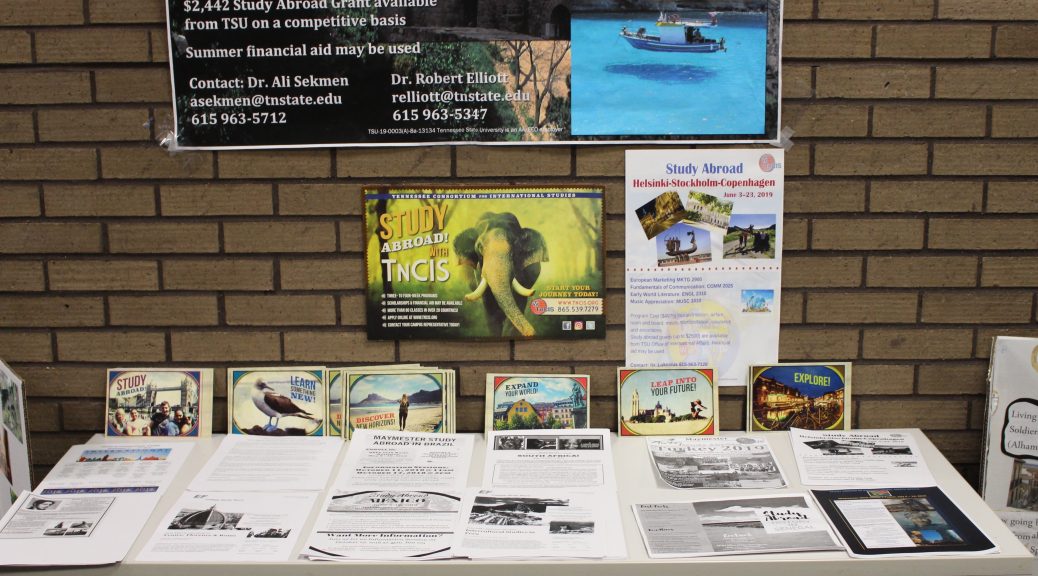NASHVILLE, Tenn. (TSU News Service) – This holiday season, Erica Conn will get a gift from Tennessee State University she has longed to receive most of her life. Thanks to a new service being offered by the Office of International Affairs, Conn will trace her ancestry.
“I’m not sure where I am from, and my ancestry is not readily available to me because my ancestors were slaves,” she said. “So my history for the most part is hidden.”
A senior office assistant in OIA, Conn is currently pursuing a master’s degree in public administration at the university. When she heard OIA would be collaborating with Helix, a personal genomics company, to provide ancestry DNA testing services for TSU students and members of the surrounding community, she convinced the office to let her volunteer as a tester so she could tell other people about the product.

“I just think that it is super important for African Americans, but not just African Americans, anyone and everyone, to know where they are from, who their ancestors are, and what the commonalities are,” she said. “What are the norms from the particular culture? How can they draw from those things, and how can they be better because of those things?
Mark Brinkley, director of International Education in OIA, said helping students explore their ancestry is part of TSU’s initiative to help them become more comfortable with their culture.
“Seventy percent of our student population is African-American,” he said. “The proposition of study abroad is, as we say, ‘Why don’t you go and experience another culture?’ That becomes even more challenging when our students don’t know their own culture.”
To assist students with the process of exploring their ancestry, Brinkley said OIA has developed more programs focused on visiting the continent of Africa, as well as following the African diaspora.
“It’s a historic fact that 12.5 million people of African descent left Africa in the slave trade. Ten million arrived to the Americas. Only 400,000 came to what we call the United States,” he said. “That means that this African diaspora is really immense, and almost anywhere we go, Brazil in South America, the Caribbean, there is a heavy African influence from the ships stopping their before they got to the United States.”
Brinkley said some of the study abroad experiences currently being planned include Senegal, South Africa, Denmark, Mexico and Peru.
Conn, who is awaiting her test results, said she eventually hopes to visit her homeland.
“I will solve the mystery of where I am from and who my ancestors are, but as far as getting there, it’s going to be a bit costly, so I will start working,” she said. “I am going to Africa with my church in 2020, but we know that Africa is a large continent, and I’m not sure where I am from, so the place where we are going may not be remotely close to where I am from. But I intend to go there, and try to find out as much information as I can.”

Brinkley, whose test revealed that he is 80 percent West African, 16 percent European, 2 percent South African and 2 percent other. said the ancestry testing helps students answer two of the three fundamental questions they ask in their programs: Who am I? How do I know? How do I interact with others?
“It was very interesting this past summer when we were in South Africa. I opened up my welcome to them by saying, ‘I’m coming back home,’ because I know who I am, and I also know how I know that,” he said.
The Office of International Affairs is located on the first floor of Holland Hall. For more information about TSU’s Study Abroad and Exchange Programs as well as ancestory testing, contact Mark Anthony Brinkley at [email protected] or (615) 963-7660.
Department of Media Relations
Tennessee State University
3500 John Merritt Boulevard
Nashville, Tennessee 37209
615.963.5331
About Tennessee State University
With more than 8,000 students, Tennessee State University is Nashville’s only public university, and is a comprehensive, urban, co-educational, land-grant university offering 38 bachelor’s degree programs, 24 master’s degree programs and seven doctoral degrees. TSU has earned a top 20 ranking for Historically Black Colleges and Universities according to U.S. News and World Report, and rated as one of the top universities in the country by Washington Monthly for social mobility, research and community service. Founded in 1912, Tennessee State University celebrated 100 years in Nashville during 2012. Visit the University online at tnstate.edu.
